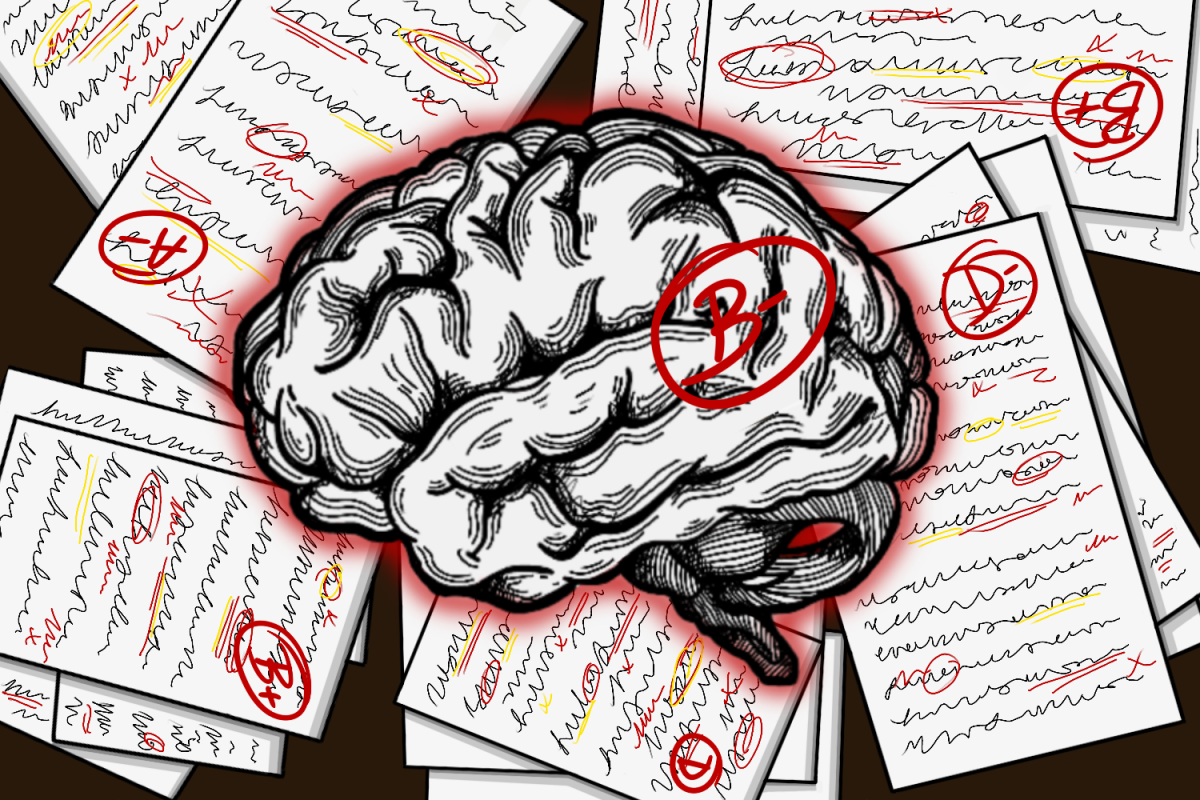It’s 2 a.m., and you huddle over your laptop as time passes. Fueled by cold coffee and emerging deadlines, students dread the night before an exam — an attempt to frantically cram as much information as possible or convince themselves that the content is just “common sense” so they can go to sleep. But amid the stress and pressure, is this test-based practice sustainable for the future?
“Tests can be used to evaluate the extent to which a student’s memory or material is adequate, but a test can equally well be used to see how a student thinks about an issue,” said linguistics professor David Beaver.
The pressure of test-based learning on students, which pressures them to memorize content instead of truly understanding it, can negatively impact students in the long run. The Intercultural Development Research Association found that high-stakes testing leads to a loss of interest in school, self-esteem and higher dropout rates.
Some often stress that your grades don’t accurately reflect your capabilities, yet the pressure to perform well can lead to potential burnout and mental health struggles. This fosters a“fixed mindset,” in which students avoid challenges in fear of failure–seeing setbacks as reflections of their abilities rather than a chance to grow.
“If (students) do badly on a test or a series of tests, they may conclude that they’re just incapable,” Beaver said. “The loss of confidence may lead to a cycle where they never really feel comfortable putting in the effort they would need to improve their performance.”
A growth mindset is necessary for growth as it encourages resilience and adaptability. According to a piece by psychologist Carol Dweck, students with a growth mindset are more likely to adapt to challenges and persevere, ultimately leading to long-term success.
“I start getting pretty worried about (the exam), and I also start to get in my head about how much I’m studying,” nutrition and dietetics sophomore Paulina Valerio said.
As someone who constantly relies on academic validation, tests are usually not a healthy learning method as they don’t accurately portray your potential. The stress from tests throughout my educational career has resulted in numerous burnouts and a reduced passion for learning.
Skills essential for professional success, such as leadership, networking and emotional intelligence, can’t be measured through the measurement of a test. A study by McKinsey & Company analyzed the skills that help people thrive in the workplace, highlighting the importance of cognitive and interpersonal skills. Although tests are standard practice in education, one day’s performance is not an accurate measure of success instead of a student’s overall development and comprehension.
“It is very off-putting whenever you feel like you actually understand (the content) in class, but so many factors can influence how you do on the test,” said Valerio.
While tests are often criticized, they enhance learning.
“Revisiting the material in a relatively low-stakes testing environment actually supports learning outcomes,” Beaver said. “We should let educators decide which methods for a particular course, what combination of methods for a particular course is going to be most helpful.”
Learning is not black and white. Intentional test approaches that suit different learning methods and topics can ultimately be more beneficial for students.
It’s essential to prioritize your mental health by reminding yourself of your abilities, which are not defined by your test score. Genuinely understanding the material instead of aiming for a high grade and developing a growth mindset toward learning can benefit you in the long run.
Vazquez is a journalism freshman from Monterrey, Mexico.














